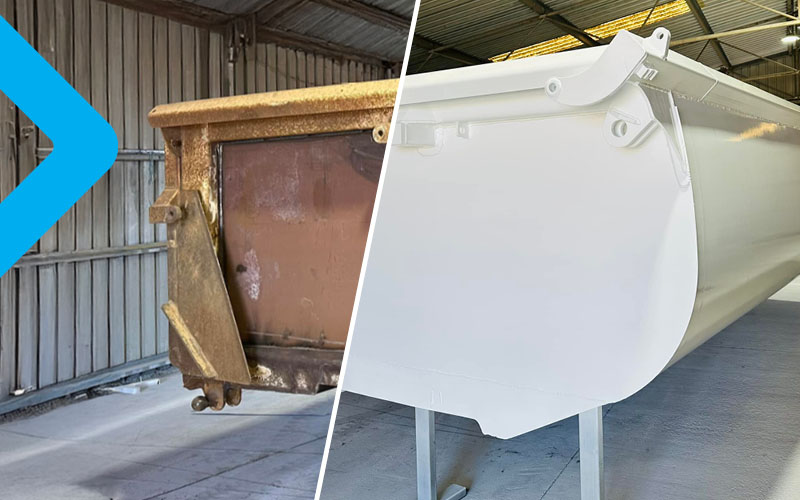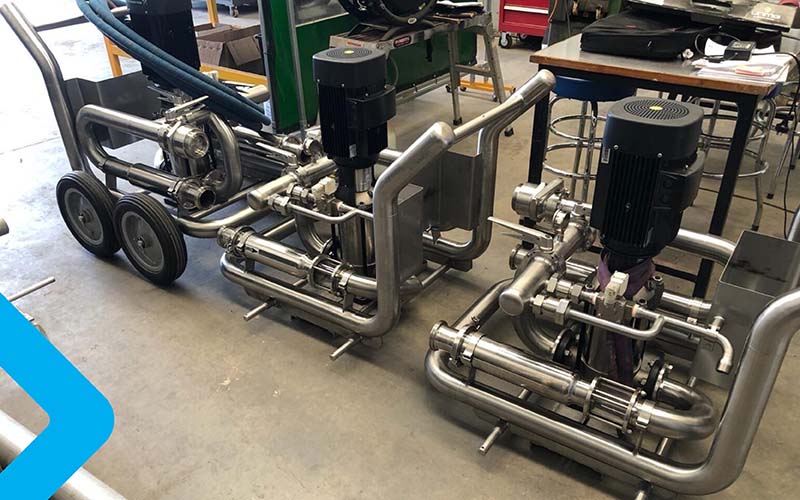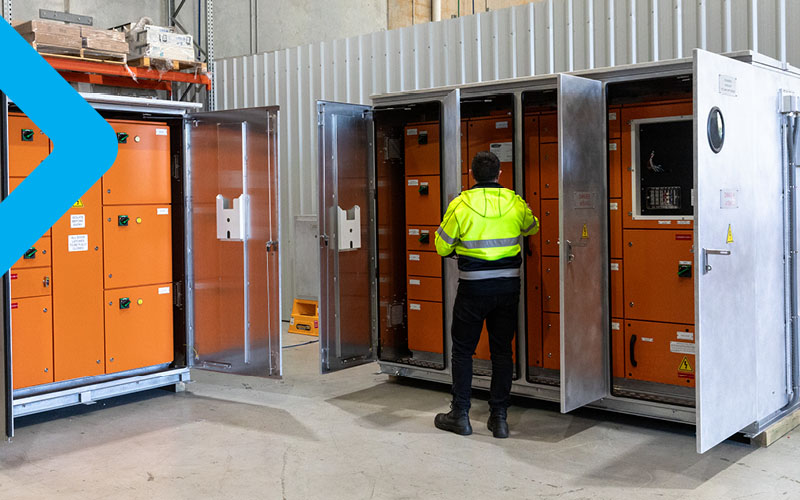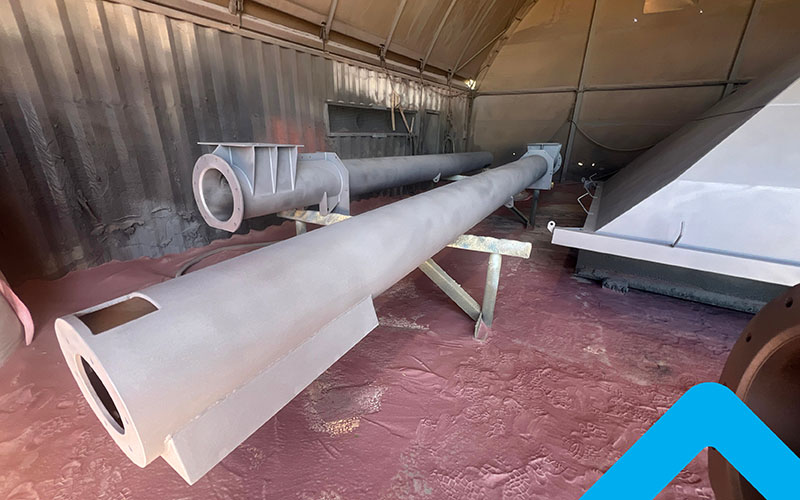The industrial sector is undergoing rapid change, driven by technological advancements, evolving environmental standards, and increasing demands for efficiency and safety. Fabrication, a critical element of industrial construction, is no exception. With innovations in materials, processes, and automation, the future of fabrication promises to be faster, more efficient, and more sustainable than ever before. This article explores the key trends shaping the future of fabrication in the industrial sector and how companies like Bluechip Industrial Services (BIS) are staying ahead of the curve.
The rise of automation in fabrication
Automation is transforming many aspects of industrial production, and fabrication is no exception. From automated welding machines to robotic assembly systems, advanced automation technologies are helping to increase the speed and precision of fabrication processes while reducing labour costs and improving safety.
For example, robotic welding systems can work continuously without fatigue, performing complex welding tasks with a level of precision that far surpasses manual methods. These systems can also be programmed to handle repetitive tasks, freeing up human workers for more skilled roles. This not only increases efficiency but also reduces the likelihood of errors, resulting in higher-quality fabricated components.
At Bluechip, we have invested in state-of-the-art fabrication technologies that incorporate automation to enhance our production capabilities. Our use of automated systems enables us to deliver high-precision fabricated components faster and more efficiently, while maintaining the highest standards of quality.
Advanced materials for superior performance
Another key trend shaping the future of fabrication is the development of advanced materials. Industries such as mining, oil and gas, and infrastructure are increasingly demanding materials that offer greater strength, durability, and resistance to extreme conditions. In response, fabricators are turning to high-performance alloys, composites, and other advanced materials that can meet these requirements.
For instance, high-strength steel alloys and corrosion-resistant materials are becoming more common in applications where traditional materials would fail under harsh conditions, such as offshore oil platforms or chemical processing plants. These advanced materials not only improve the performance and lifespan of fabricated components but also reduce maintenance costs and downtime.
BIS is at the forefront of incorporating advanced materials into our fabrication processes. Whether it's fabricating pressure vessels for the energy sector or subsea structures for offshore operations, we work with cutting-edge materials to ensure that our clients receive components that are built to last in the most challenging environments.
Sustainability and green fabrication
As environmental concerns take centre stage across industries, there is a growing emphasis on sustainability in fabrication. Clients are increasingly looking for ways to reduce the environmental impact of their projects, and fabricators are responding by adopting greener practices.
One major area of focus is the reduction of waste during the fabrication process. Techniques such as lean manufacturing and precision engineering are being used to minimise material waste, resulting in more efficient use of resources. Additionally, advancements in recycling technologies are allowing for the reuse of materials, further reducing the environmental footprint of industrial fabrication.
At Bluechip, sustainability is a core part of our approach to fabrication. We are committed to implementing eco-friendly practices across our operations, from reducing energy consumption in our fabrication yards to using recyclable materials wherever possible. By prioritising sustainability, we not only meet the needs of environmentally conscious clients but also contribute to a more sustainable future for the industrial sector.
Digital fabrication and industry 4.0
Digital fabrication is another emerging trend that is set to revolutionise the way industrial components are produced. Technologies such as 3D printing, computer-aided design (CAD), and digital twins are allowing fabricators to produce complex components with unprecedented accuracy and speed.
For example, 3D printing, or additive manufacturing, enables the creation of intricate designs that would be difficult or impossible to achieve using traditional fabrication methods. This technology allows for rapid prototyping, reducing the time it takes to move from concept to production. It also enables customisation, allowing fabricators to produce tailor-made components to meet specific project requirements.
The integration of digital technologies into fabrication processes is a key component of the Industry 4.0 movement, which aims to create smarter, more interconnected industrial operations. At Bluechip, we are exploring the potential of digital fabrication to enhance our production capabilities and provide our clients with even more precise, customisable solutions.
The importance of skilled labour
While technology is playing an increasingly important role in fabrication, skilled labour remains crucial. As automation and digital tools become more prevalent, the need for highly skilled workers who can operate and maintain these systems is growing. Fabricators must invest in training and development to ensure that their workforce is equipped to handle the demands of modern fabrication technologies.
At Bluechip, we recognise the value of our skilled workforce. Our team of engineers, technicians, and fabricators are highly trained in the latest fabrication techniques and technologies, ensuring that we can continue to deliver top-quality results for our clients.
Embracing the future of fabrication
The future of fabrication in the industrial sector is bright, with new technologies and materials paving the way for faster, more efficient, and more sustainable processes. Companies that embrace these innovations will be well-positioned to meet the evolving needs of their clients and stay competitive in an increasingly demanding market.
At Bluechip Industrial Services, we are committed to staying at the forefront of these developments. By investing in advanced technologies, adopting sustainable practices, and continuously improving our fabrication processes, we are ready to meet the challenges of the future head-on. Whether it’s through automation, advanced materials, or digital fabrication, Bluechip is dedicated to delivering the high-quality, innovative solutions that our clients expect in an ever-changing industrial landscape.
_Line.svg)



























